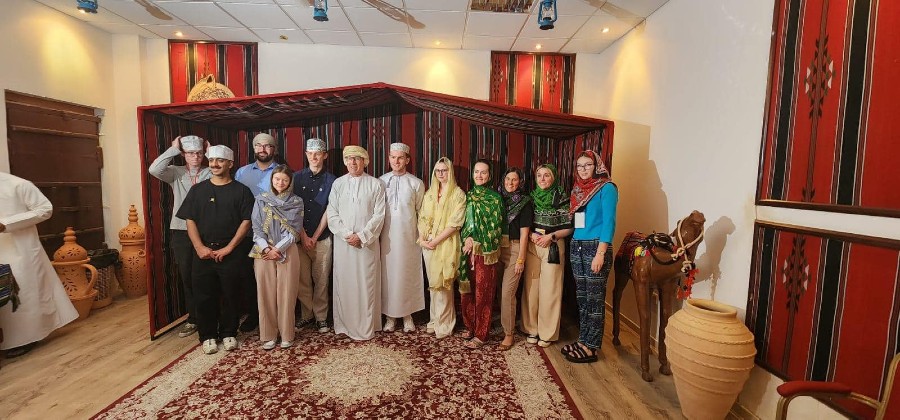Transnational education trip to Oman proves a winner

Students put their learning to the test last week when they looked to solve ‘energy security’ problems in Oman, while also drawing comparisons to those in Scotland.
A multidisciplinary group of third years from the School of Computing, Engineering and Built Environment (SCEBE) visited the University’s partner institution in Oman for an intensive week-long study trip.
While at the National University of Science and Technology (NUST), the students looked at various hypothetical solutions to ensure uninterrupted availability of energy sources at an affordable price.
They were asked to outline the main sources of energy used and costs associated; review energy targets; highlight any recent energy developments; outline the organisations involved in planning, development and exploitation of energy resources; and review the professions within the energy sector and the employability skills sought.
This was then presented in numerous ways, such as via academic writing, a daily diary and a physical presentation.
The students also visited the British Embassy while in Muscat and took in trips to several Omani landmarks and places of interest.
The trip was part of GCU’s Promoting Excellence in Employability Skills (PEETS) programme, designed to give students access to life-changing experiences with a national teaching excellence award.
Professor Bob Gilmour outlined the importance of building the teaching of employability skills into SCEBE programmes. He said: “This exciting study trip is an excellent opportunity for students to develop a variety of skills/attributes to help prepare them for employment.
“Working in interdisciplinary teams in multicultural environments adds significant value to their learning and understanding and undoubtedly will enhance the students’ overall development.”
In 2019, Glasgow Caledonian’s PEETS was one of just 15 projects at UK universities to receive the prestigious Collaborative Award for Teaching Excellence from Advance HE.
